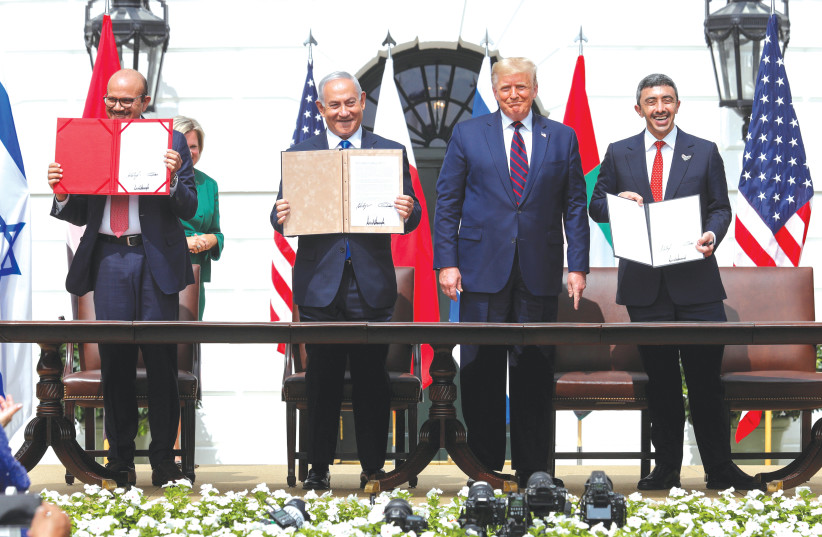The United Arab Emirates has become home to the first new Jewish community in the Arab world in more than a century.
Kosher food is readily available, Jews are celebrating Shabbat and holiday services together, a community center will soon open, and plans are in the works for a day school.
Most prominently, the Abrahamic Family House is scheduled to open next year in the nation’s capital. The vast interfaith complex will house a mosque, church and synagogue of equal size, and serve as a symbol of the government’s desire to building bridges between the three Abrahamic faiths.
Great strides have already been made in this area. On a recent trip to the UAE with the WJC Jewish Diplomatic Corps, hosted by the UAE Embassy in Washington, I saw Jewish people openly wearing Jewish symbols in public. Hebrew can be heard in the sprawling malls and atop the Burj Khalifa as curious Israeli tourists flock to these sites.
This stands in stark contrast to what we are witnessing in North America and Europe where expressions of Jewish life are slowly retreating underground.

In place of proud displays of Jewish identity or Israeli symbolism, we see swastikas scrawled on public buildings and armed guards posted outside synagogues and Jewish schools. Just a couple of blocks from where I live in Boston, a rabbi was stabbed while taking a phone call outside a Jewish elementary school.
The warm embrace of Jewish people in the UAE makes clear that a dramatic paradigm shift is taking place. As antisemitism and anti-Israel sentiments surge in Western countries, a quiet and tacit acceptance of Israel and Jewish communities is finding a toehold in Arab states.
For decades, the consensus among the political, diplomatic and scholarly echelons has been that resolving the Palestinian-Israeli conflict is a prerequisite to any broader Arab-Israeli peace.
The US-brokered normalization of ties between the UAE, Bahrain and Israel under the Abraham Accords laid rest to that notion.
Amir Hayek, Israel’s first ambassador to the UAE, aptly describes the accords as a baby that’s growing up fast and already speaks three languages.
A wave of pragmatism is sweeping through the Middle East. Arab governments will no longer set Palestinian national interest before their own. Least of all owing to the very real shared concern about Iran, which would destroy Israel and many of the Sunni Arab states given the chance.
The mere fact that the UAE has a minister of tolerance and a Ministry of Possibilities speaks to the country’s forward-looking mindset. The government is eager to send a message to the international community that the UAE is modern, sophisticated and welcoming to people of all faiths.
Case in point, the UAE is currently playing host to the 2020 World Expo, and its chosen theme, “Connecting Minds, Creating the Future,” focuses heavily on sustainability and opportunity. Israel’s participation marks the first time there is an Israeli pavilion in a major fair on Arab soil.
The speed with which the UAE’s position on Israel has gone from official enmity and unreserved vitriol to warm and welcoming is frankly stunning. Not long ago, the UAE refused to allow the Israeli flag to be flown at competitions it hosted. Today, a little more than a year since the Abraham Accords, there are close political, business, security, athletic and cultural ties.
The Abraham Accords are eroding long-held prejudices and replacing rejectionism with an openness to peace and coexistence. If Arab states that have long denied Israel’s right to exist can accept the reality that Israel is an integral feature and welcome contributor to the Middle East, perhaps there is hope for the Jewish communities of North America and Europe.
If not, we’ll need to look east where peace between Israel and its neighbors isn’t just possible, it’s probable.
The writer is a member of the World Jewish Congress Jewish Diplomatic Corps and co-founder of Boundless Israel. She previously served as director of speech-writing for the Israeli mission to the United Nations.
